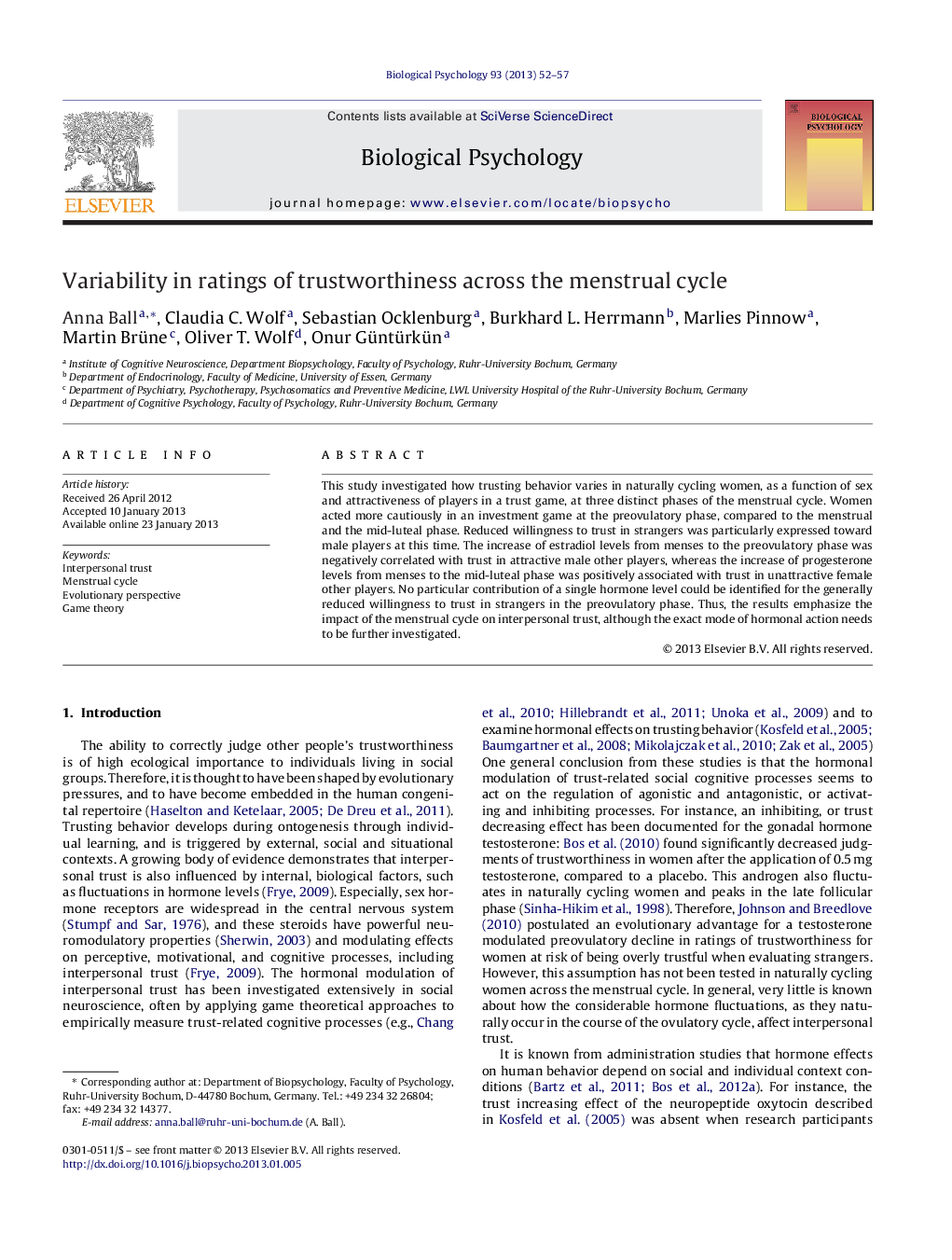| Article ID | Journal | Published Year | Pages | File Type |
|---|---|---|---|---|
| 920981 | Biological Psychology | 2013 | 6 Pages |
This study investigated how trusting behavior varies in naturally cycling women, as a function of sex and attractiveness of players in a trust game, at three distinct phases of the menstrual cycle. Women acted more cautiously in an investment game at the preovulatory phase, compared to the menstrual and the mid-luteal phase. Reduced willingness to trust in strangers was particularly expressed toward male players at this time. The increase of estradiol levels from menses to the preovulatory phase was negatively correlated with trust in attractive male other players, whereas the increase of progesterone levels from menses to the mid-luteal phase was positively associated with trust in unattractive female other players. No particular contribution of a single hormone level could be identified for the generally reduced willingness to trust in strangers in the preovulatory phase. Thus, the results emphasize the impact of the menstrual cycle on interpersonal trust, although the exact mode of hormonal action needs to be further investigated.
► We tested menstrual cycle effects on ratings of trustworthiness as a function of sex and attractiveness of players in a trust game. ► We found reduced trusting behavior in the pre-ovulatory phase, compared to the low-hormone menstrual and to the high-hormone mid-luteal phase. ► A direct hormone-behavior-link to account for this result was not observed.
